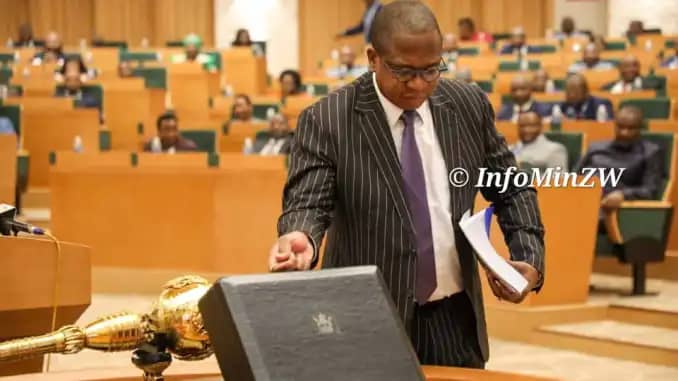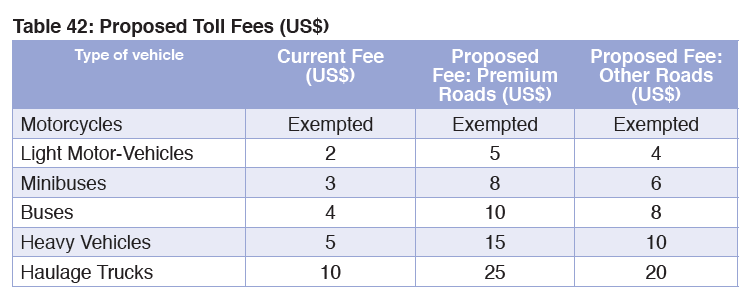Ncube introduces a battery of new taxes

Finance Minister Mthuli Ncube
From taxes on fizzy drinks, higher toll gate fees and lithium levies, Finance Mthuli Ncube has brought a battery of new taxes under his 2024 budget.
With little external support, Ncube is putting the squeeze on the public to raise money to pay for everything from road rehabilitation to cancer treatment.
Here, we summarise how Ncube’s Z$58.2 trillion 2024 budget will affect your business and your pocket.
If you are a civil servant
There is good news and bad news. First, that US$300 COVID allowance is now part of your pensionable salary, starting in January. The bad news is that this means it is now taxable.
Ncube is reviewing the Tax-Free Threshold to Z$750 000 per month, and adjusting the tax bands to end at Z$270 million per annum, above which tax will be levied at a rate of 40%, with effect from 1 January 2024. At current rates of inflation, this threshold may soon be eroded. USD usage, by government’s own data, is now also dominant.
If you are a trader
We know that manufacturers now prefer to sell their goods straight to informal traders, because the big supermarkets pay late. Ncube says he wants to “restore the supply chain from the manufacturer, wholesaler to retailer”. Now, in a throwback to old regulations, a trader can only buy from a manufacturer or wholesaler if they are licenced and tax-compliant.
Only traders registered for VAT and with valid Tax Clearance Certificates can buy goods from manufacturers. The VAT registration threshold will be cut from US$40,000 to US$25 000, or the local currency equivalent, starting January.
“Enterprises that meet the above threshold should, thus, register and account for VAT, failure of which applicable penalties will be invoked,” he says.
This measure may disrupt business for manufacturers, who have the administrative duty to check the tax status of each of their customers, making compliance difficult. Informal traders are now their biggest customers. The step may also promote imports.
United Refineries CEO Busisa Moyo reacted: “A commendable move for the fiscus. On the other hand, local industry will have to be protected for this to work or else informal traders may just import and go completely underground, and manufacturers will be left with customers who insist on credit terms, with little bank finance.”
Mthuli is also removing the duty free entry of basic groceries.
New tax in town
There’s a new tax, called the Minimum Domestic Top-Up Tax. Ncube says global rules now demand that large multinational enterprises pay a minimum Corporate Income Tax rate of 15%. He says generous tax incentives are allowing these companies to pay less than this. He is proposing a new tax, the DMTT, which allows the country hosting the multinational to collect “top up tax” rather than the tax going to the headquarters of the company.
The corporate tax has been raised back up to its original levels of 25%, after it was cut to 24% in 2020 to help businesses through COVID.
If you are a lithium miner
There is a major policy change on lithium. Currently, large lithium investors in Zimbabwe are processing and exporting concentrates. Now, they will be compelled to process lithium into carbonates, which is some two stages further up the processing chain. Concentrates are longer seen as “beneficiation”, and would attract an export tax.
Lithium miners have until March to submit their processing plans. No new lithium licences will issued without this plan. Lithium miners were already hoping for a cut on their 5% royalty fees, to give them relief from a sharp fall in global lithium prices. A new tax may force them to scale back on new investment.
This rule means that lithium miners must now go beyond just the concentrator plants they have built to process ore. They now need to install converters for further processing of the concentrate to produce lithium carbonate.
More on miners
Ncube is imposing a 1% levy on revenues from lithium and granite miners and producers of quarry stones. This is necessary, he says, “to improve conditions within these (mining) communities”.
If you are a driver
There’s bad news, and more bad news. First, fuel will become more expensive. Mthuli is increasing the Strategic Reserve Levy by US$0.03 and US$0.05 per litre of diesel and petrol, respectively, with effect from January.
There is more: So, you liked the recently resurfaced Beitbridge-Harare highway? You now have to pay for it. Ncube proposes to increase toll fees from the current US$2 to US$5 or equivalent on what he calls “premium roads”. These include the Harare-Beitbridge highway and the Plumtree-Mutare road.

Without external funding, government relied on the budget to fund the Beitbridge highway, but has struggled to pay contractors. The Plumtree-Mutare road was built using a loan from DBSA. We reported last year that this money was supposed to be repaid by 2022, but government had defaulted. A restructured deal, at a lower interest rate of 5% from the previous 6.18%, would see an outstanding US$165 million being paid over a further 15 years.
More taxes
Mthuli has even more bad news for you. Passport fees are going up from US$120 to US$200.

Vehicle Registry Fees are also up.

If you love fizzy
Mthuli is charging a new tax on the sugar in your fizzy drinks. He says this is “necessary to discourage consumption of high sugar content beverages”. Each drink will now come with a tax of US$0.02 per gram of sugar. What will the money be used for? It will be used for therapy and procurement of cancer equipment for diagnosis, Mthuli says.
If you’re a home-owner
If your house is worth over US$100,000, you will now pay an annual 1% “Wealth tax” on the value of your house. The money, Mthuli says, will be used for “urban infrastructure development, in particular roads, water, sewer and community health centres.” However, people aged over 70 are exempted from paying this taxes for their private homes.

If you stashed your money in a vault
Because you don’t trust the bank, you may have a vault at your bank or the security company. Mthuli wants to know what’s in there, and whether it is legal or tax-compliant. Under current laws, government can only do that with a court order, due to privacy laws. A garnish order cannot be issued on money kept in vaults. Ncube says this is helping people evade taxes and commit crimes.
Now, Ncube is proposing to give ZIMRA powers to “open custody vaults at any time to ascertain contents and that financial institutions and other companies that offer custodial services receipt the contents of cash in their custody”.
Source: NewZwire





